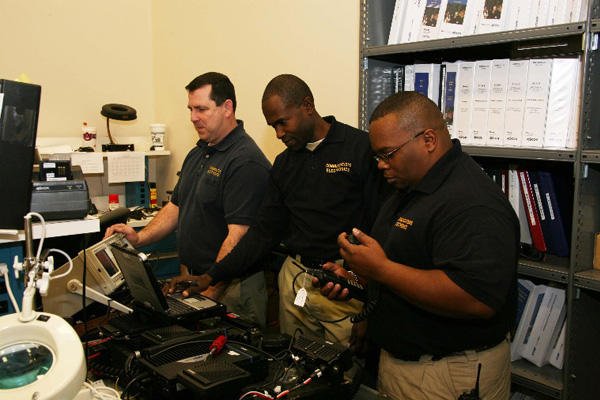Telecommunications Equipment Installer and Repairer
Based on your feedback, we're launching weekly articles to provide more detailed information on securing some of best jobs out there for veterans, along with a list of four things you need to secure these jobs. This week's hot job: Telecommunications Equipment Installer and Repairer.
Traits
Telecommunications is a complex industry and the equipment that makes it all run can be equally so. Experts in this field need a few select skills to get by including people skills, good dexterity, technical aptitude, and the ability to troubleshoot. This job often requires working in a customer's home or some other private location. You'll be face to face with them often, so you'll need to be able to navigate difficult personalities and what may seem like a slew of dumb questions. The goal is to get their equipment up and running, but doing so with amicability is a huge bonus.
Working with this type of equipment means small wires and little pieces of hardware – if you're colorblind then you won't be able to differentiate lines, and if you have terrible dexterity with your hands then you won't be able to work efficiently. Technical skills are the final must – although you won't need to engineer new products, knowing how equipment works is necessary to figuring out why it won't work and repairing it.
Education
At a bare minimum, experience with electronics and computers is a must. Otherwise, an associate's degree in electronics repair, computer science, computer engineering, or anything else that's related is required. While not every job within this profession requires a four year degree, central office technicians and headend technicians who handle commercial systems are more likely to need a bachelor's degree when applying.
Aside from the entry requirements, due to the changing nature of telecommunications, professionals must stay current on new equipment and software. This can be done through personal study or by attending manufacturer's classes, reading manuals, and actually handling new products.
Marketable Skills
The more practical experience you have with telecommunications gear the better. Knowing the latest equipment and standard practices shows employers that you have up-to-date knowledge of the industry and are a well-prepared individual. Sometimes, however, this type of knowledge can only come from actual on-the-job training. If you don't have access to local classes or programs, try getting any job related to telecommunications equipment installation and repair at the low end of the spectrum and work your way up.
Considering the breadth of the telecommunications industry, different jobs in this field may require different specific certifications. These are typically governed by jurisdiction, employer, and specialization. Local schools typically provide only broad programs, but the Society of Cable and Telecommunications Engineers and the Telecommunications Industry Association over specific programs for different requirements.
Helpful Resources
If you feel prepared and are ready to plunge into the job search, search for Telecommunications Equipment Installer and Repairer jobs on Monster.com.











